
My year-end post on Global Developments is up—if you have any comments / feedback over the previous year of posts, please chime in!
One Year of Global Developments: www.global-developments.org/p/one-year-o...
@global-developments.org.bsky.social
Development economics and economic history. Research Fellow at Open Philanthropy. PhD Berkeley, AB Harvard. Views my own. Blog: www.global-developments.org Personal: www.oliverwkim.com

My year-end post on Global Developments is up—if you have any comments / feedback over the previous year of posts, please chime in!
One Year of Global Developments: www.global-developments.org/p/one-year-o...
was tinkering with some OCR and decided to update an old econ history OCR example. What a difference a couple of years makes:
old: github.com/apoorvalal/h...
new: github.com/apoorvalal/h...
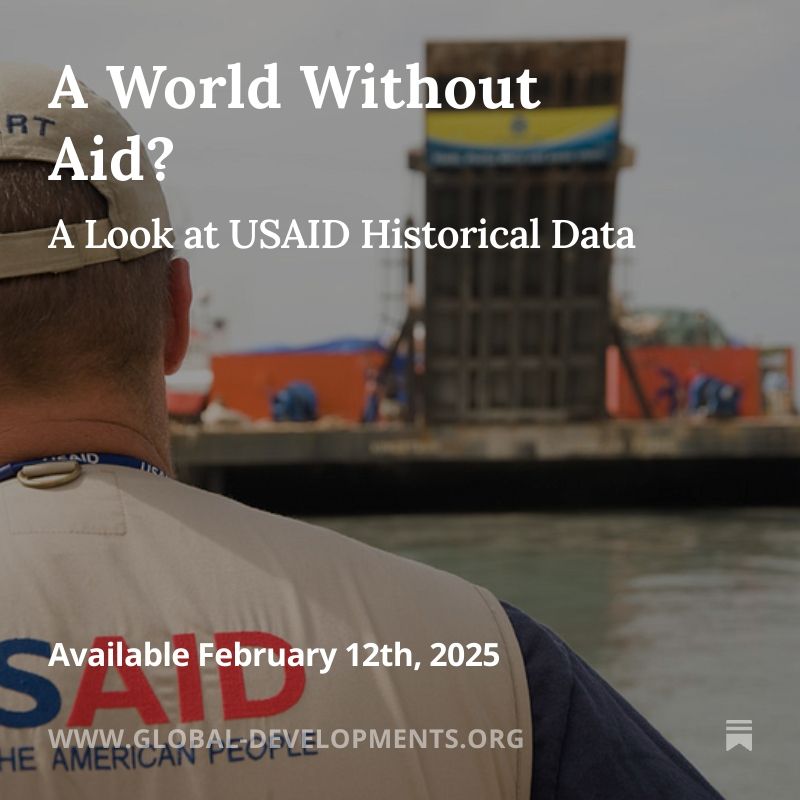
These charts come from my new 🌐 Global Developments 🌐 blog post, "A World Without Aid". Check it out below:
www.global-developments.org/p/a-world-w...
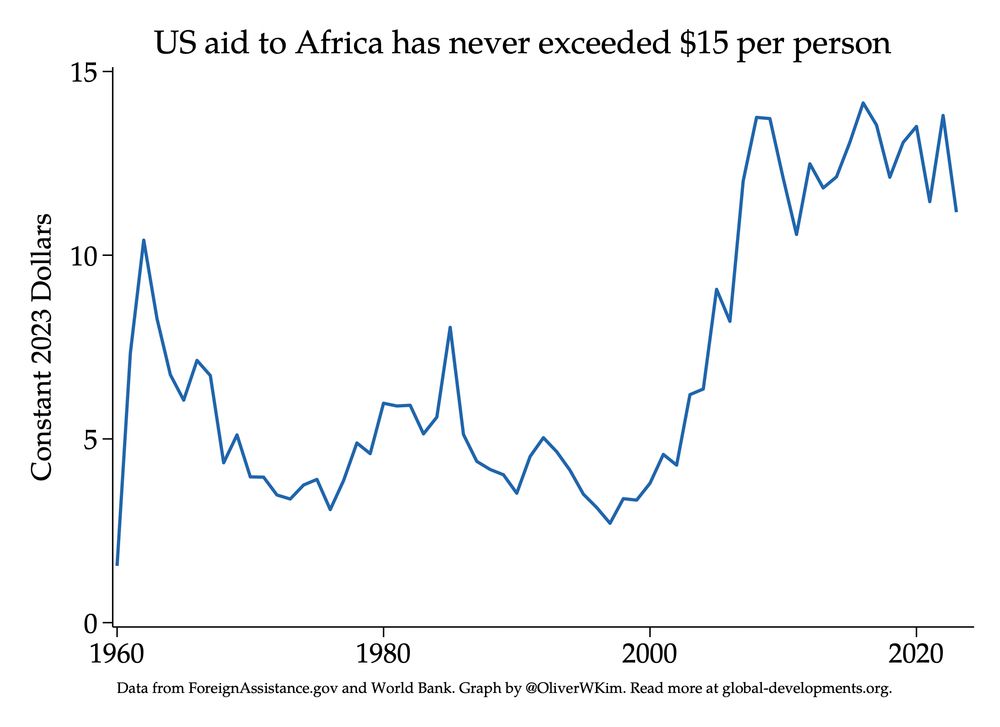
By comparison, US aid to Sub-Saharan Africa has remained relatively low—it has never exceeded $15 per person since 1960.
Roughly $5 of that goes to PEPFAR, one of the most effective public health interventions we know of.
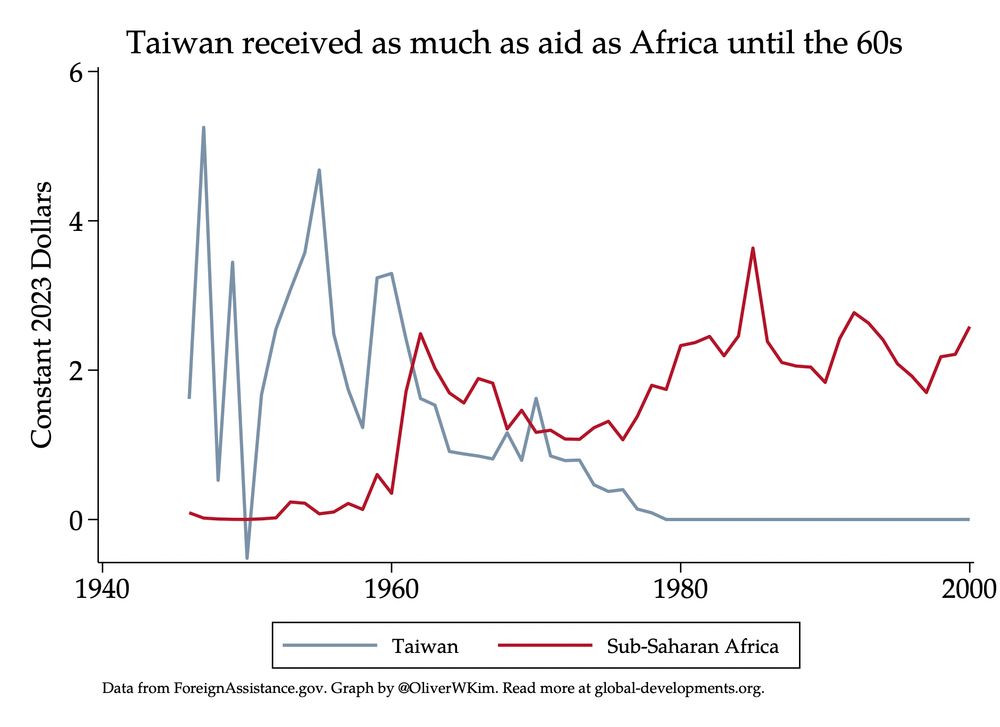
Similarly, Taiwan received as much aid as all of Africa, into the early 1960s.
Some of this aid supported the Joint Committee on Rural Reconstruction, which oversaw the famous 1950s land reform, and also crucial work on ag extension.
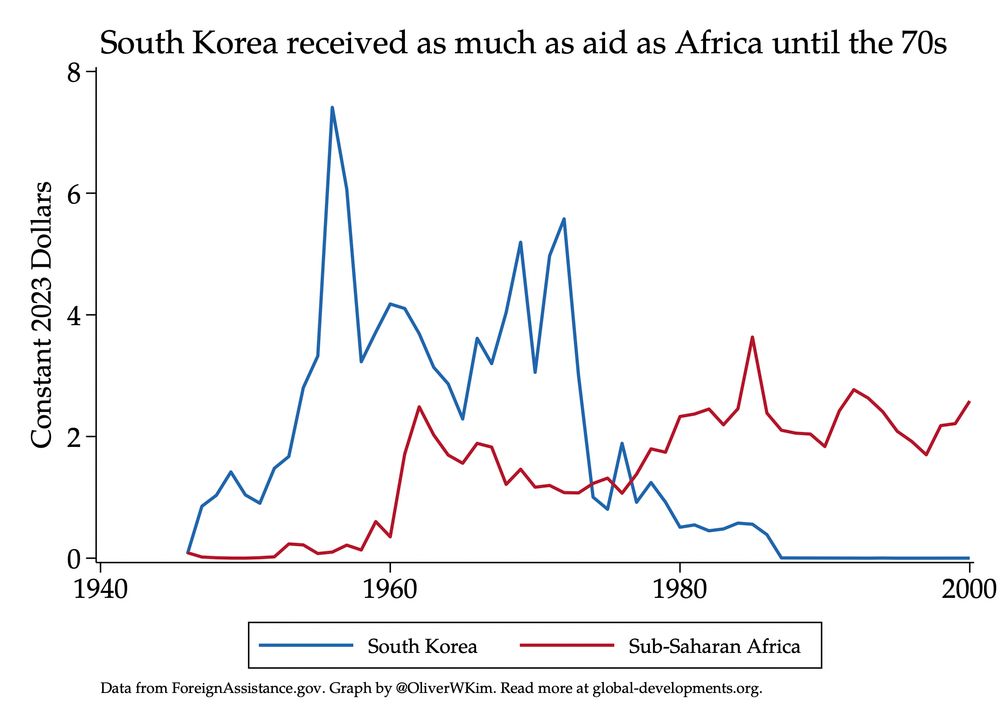
The geography of aid has shifted enormously over time.
One crazy fact is that South Korea received more aid than all of Sub-Saharan Africa combined, well into the 1970s. An under-appreciated feature of the East Asian Miracle!
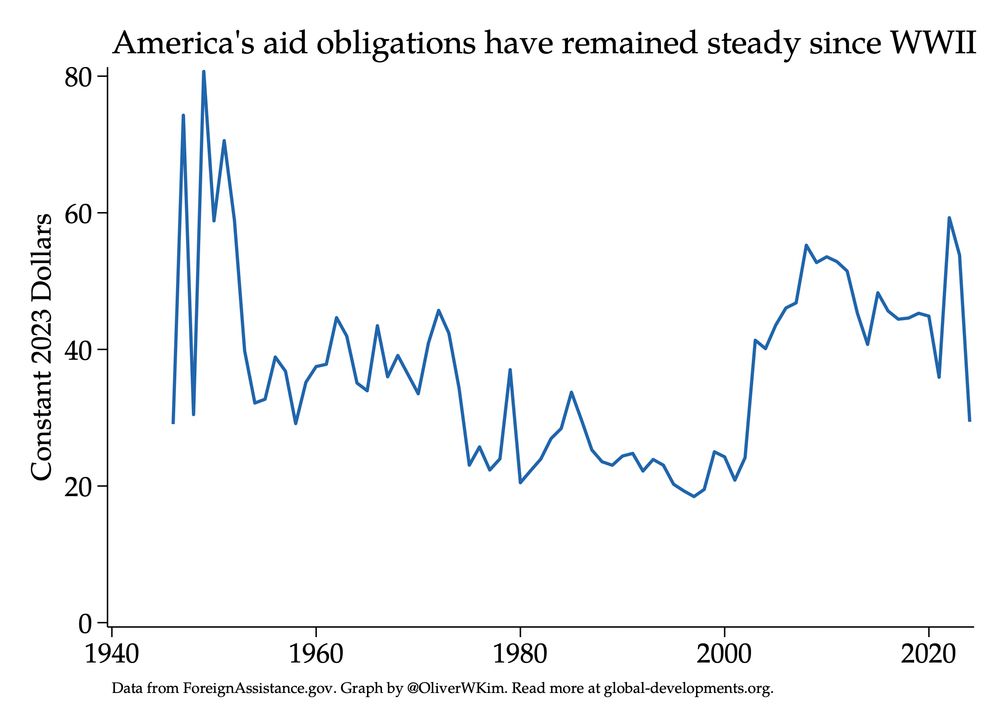
Quick 🧵 on American aid spending, to accompany my new Substack (link below)
US aid obligations have remained remarkably steady in real terms since WWII, rarely exiting a band of $20-60 billion in 2023 dollars. Surprisingly, the year with the most aid obligations was... 1948!


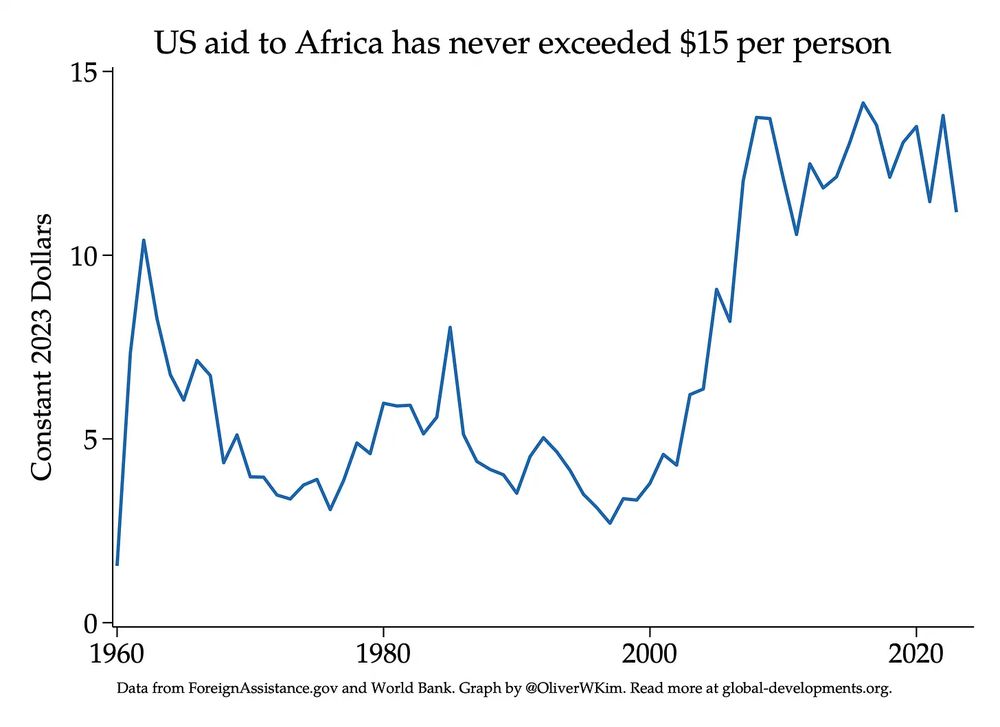
Striking set of graphs from @global-developments.org - for years South Korea & Taiwan received more US aid than all of Africa combined
www.global-developments.org/p/a-world-wi...
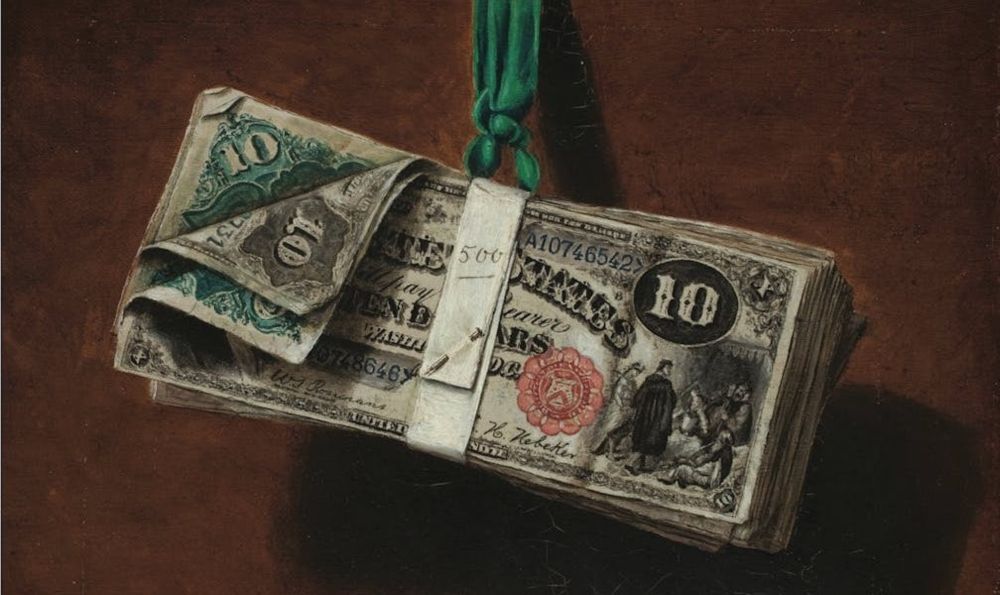
New 🌐Global Developments🌐 post: How Do Exchange Rates Work, Anyway?
Folk wisdom, dollar dominance, and hot money
www.global-developments.org/p/how-do-exc...

New 🌐Global Developments🌐 post: How Do Exchange Rates Work, Anyway?
Folk wisdom, dollar dominance, and hot money
www.global-developments.org/p/how-do-exc...
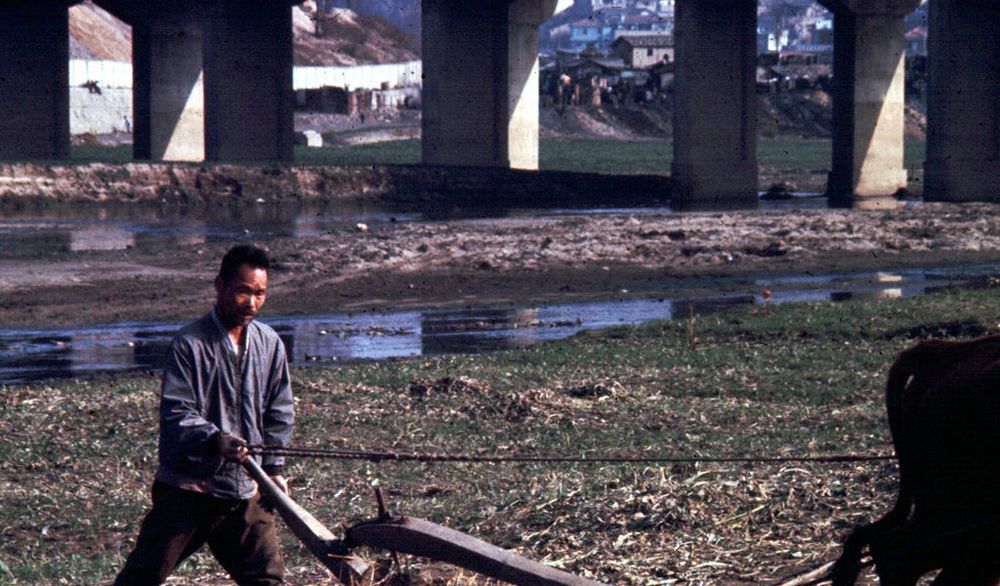
Excellent post from @global-developments.org (with a moving personal story).
No, South Korea Was Not Poorer Than Kenya in 1960 www.global-developments.org/p/no-south-k...
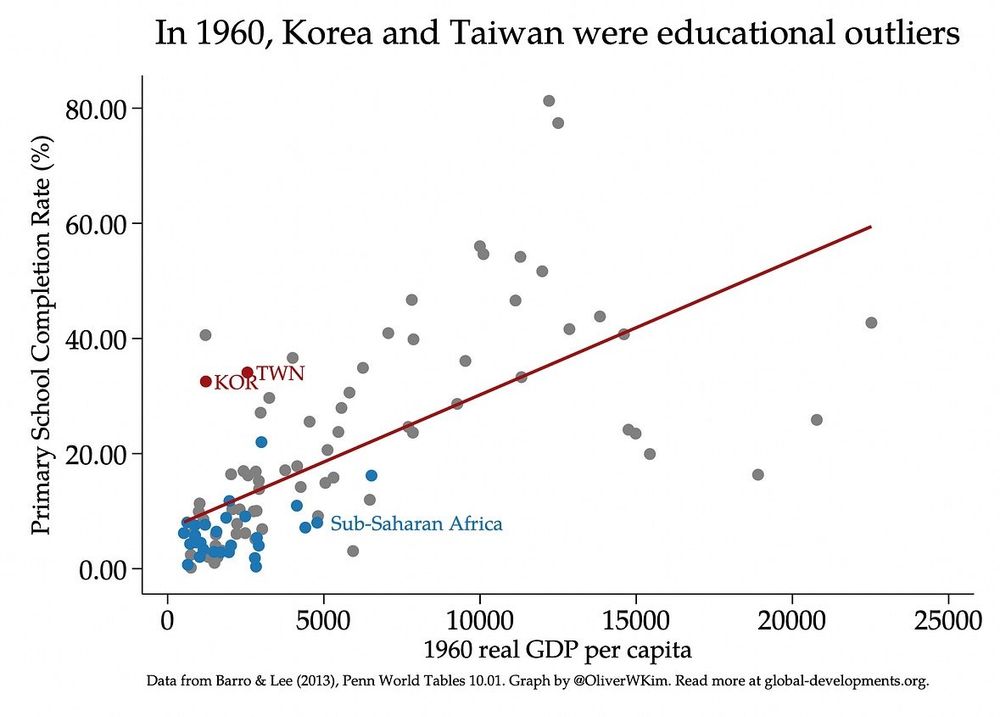
In 1960, South Korea and Taiwan were educational outliers.
Hugely important graph by @global-developments.org, echoing a point made in @drodrik.bsky.social (1995).
This fact is crucial to understanding East Asia’s economic success.
Thanks! In at least the standard neoclassical model, the price of land isn't the main channel, it's more changing demand for goods in sectors that do exist. My advisor Jon Steinsson's recent paper on England documents only modest increases in land rents after 1760:
eml.berkeley.edu/~enakamura/p...

New Post: Why Did the Industrial Revolution Happen? And Other Simple Questions
www.global-developments.org/p/why-did-th...

New Post: Why Did the Industrial Revolution Happen? And Other Simple Questions
www.global-developments.org/p/why-did-th...
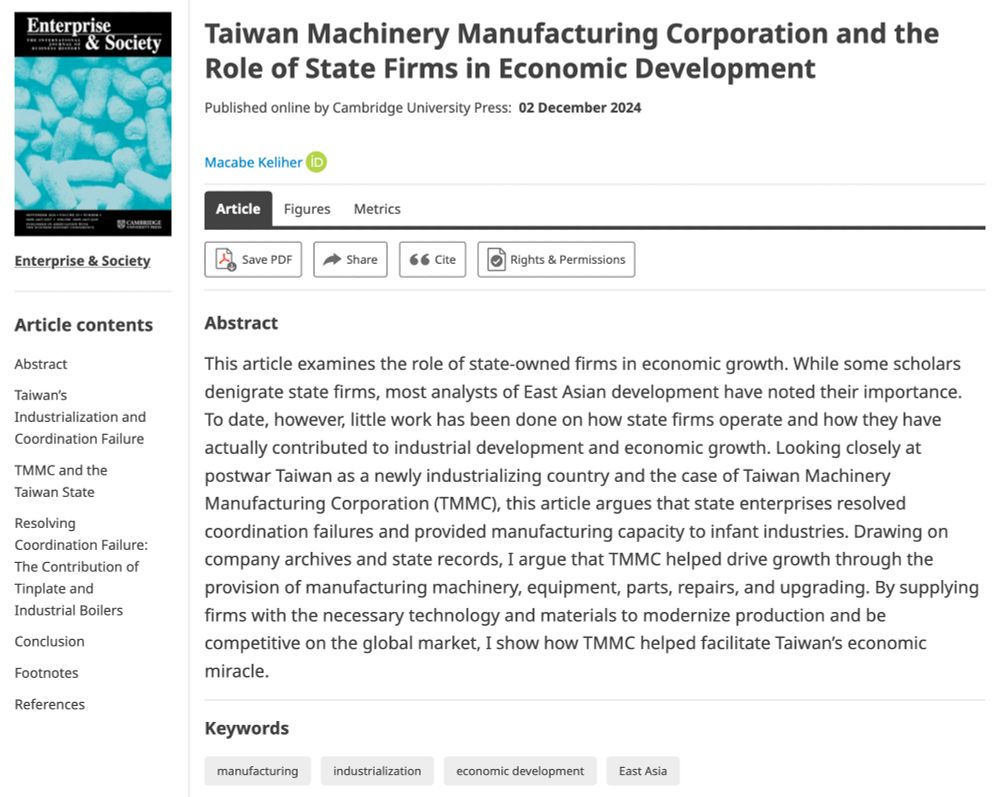
My colleague @MacabeKeliher just published this excellent article about the role of Taiwan Machinery Manufacturing Corporations, as SOE, in Taiwan's postwar economic development. Part of what he calls the "archival turn" in studies of the developmental state. Interesting stuff!
06.12.2024 22:13 — 👍 16 🔁 5 💬 1 📌 0I always loved Lee Kuan Yew's description of Korean protest:
"The Koreans are a fearsome people. When they riot, they are as organized and nearly as disciplined as the riot police who confront them... When their workers and students fight in the streets... they look like soldiers at war."

What do we call a poor country—"underdeveloped", "developing", an "emerging market"?
A potted history (and Global Dev post) on our changing words for poverty—the rhetoric of underdevelopment:
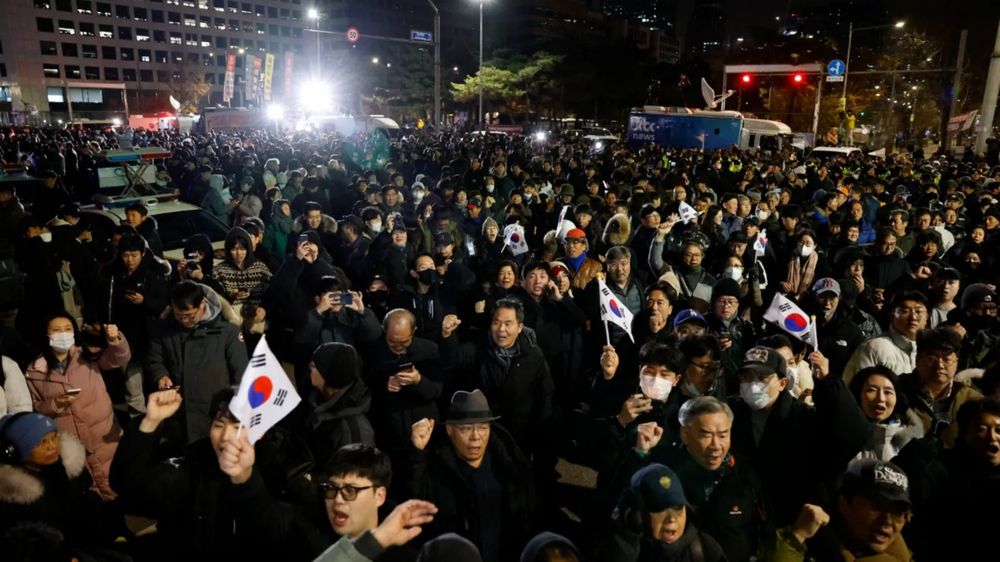


"Asian values are incompatible with democracy"
03.12.2024 20:53 — 👍 17 🔁 3 💬 0 📌 1
Words reflect power, much more than they can reshape it.
In the face of staggering inequality, without transformative change, "Global South" and new terms will likely follow "Third World" as an insult.
More in my post: www.global-developments.org/p/the-rhetor...
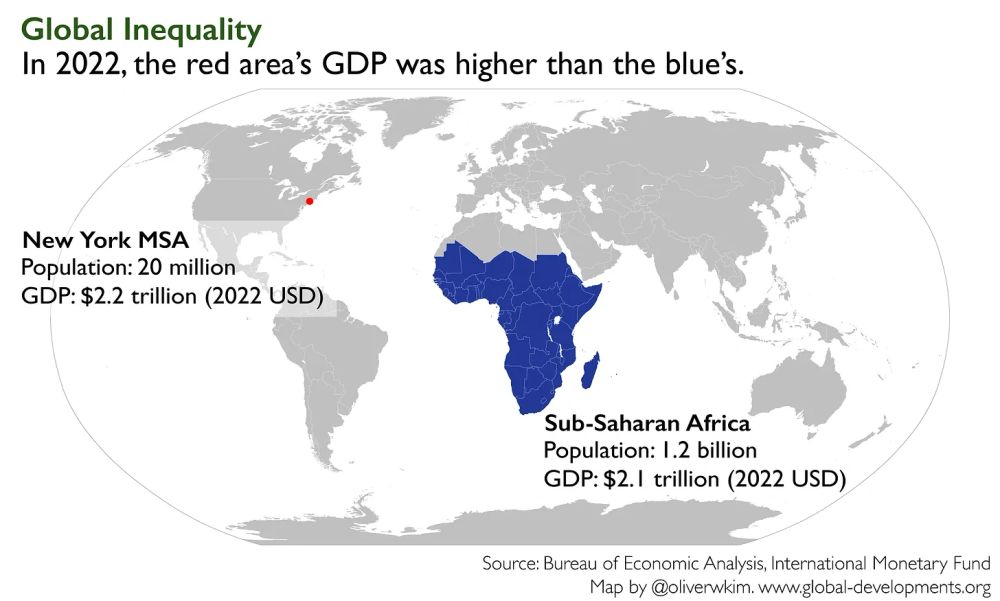
These terms, sadly, have also become pejoratives—useful metaphors for rich countries to describe when things don't work.
Joe Biden once quipped in 2014 that LaGuardia was like a "Third World country"; the MSA served by LaGuardia has a higher GDP than all of Sub Saharan Africa.
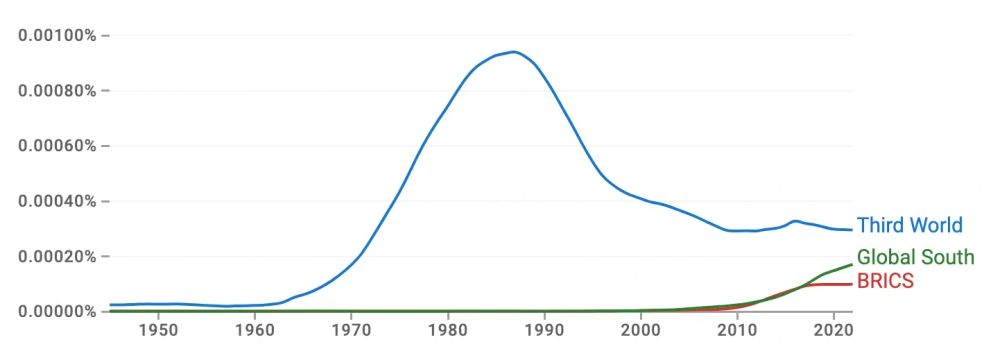
What do we call poor countries as a group?
"Third World", invented by French demographer Alfred Sauvy, was dominant for most of the century. "Global South"—coined by SDS President Carl Oglesby—and "BRICS"—derived from a Goldman Sachs research report—are its two new competitors.
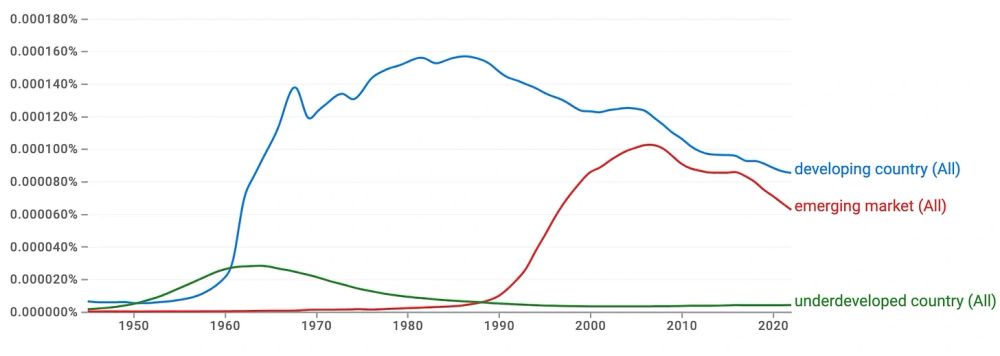
After decolonization, "underdeveloped country" was briefly dominant.
In the optimistic 60s, "developing country" took over—even as development in Africa + LatAm stalled in the 70s-80s.
China's rise in the 90s saw the emergence of "emerging markets"—before those disappointed too

What do we call a poor country—"underdeveloped", "developing", an "emerging market"?
A potted history (and Global Dev post) on our changing words for poverty—the rhetoric of underdevelopment:
The AEA/ASSA meetings are in SF in January. Workers at several conference hotels, including 2 headquarters hotels, are on strike. @aaronsojourner.org put together a very useful explainer. aaronsojourner.org/hotel-worker...
02.12.2024 18:33 — 👍 29 🔁 17 💬 1 📌 4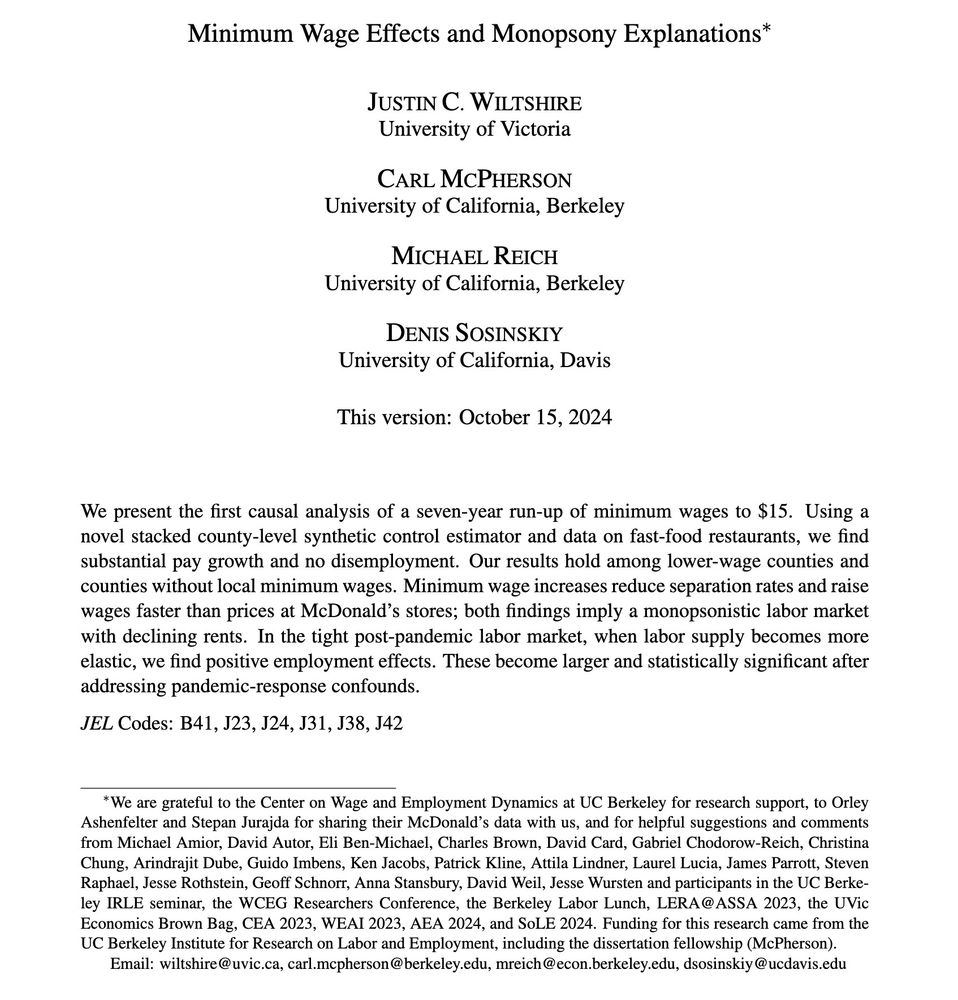
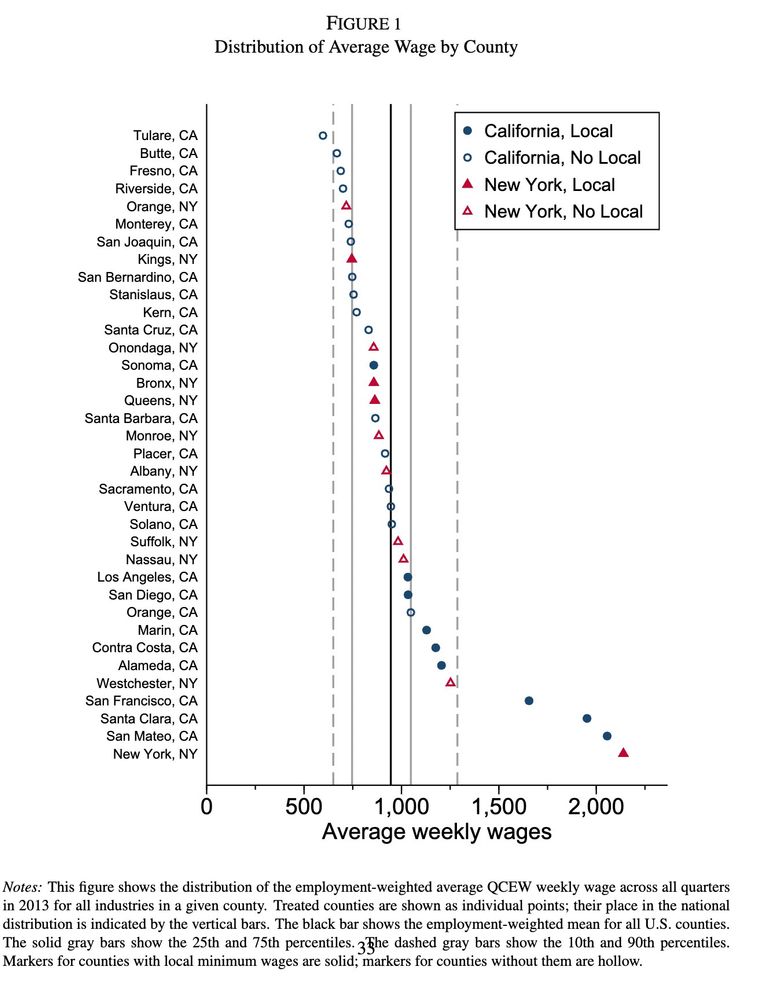
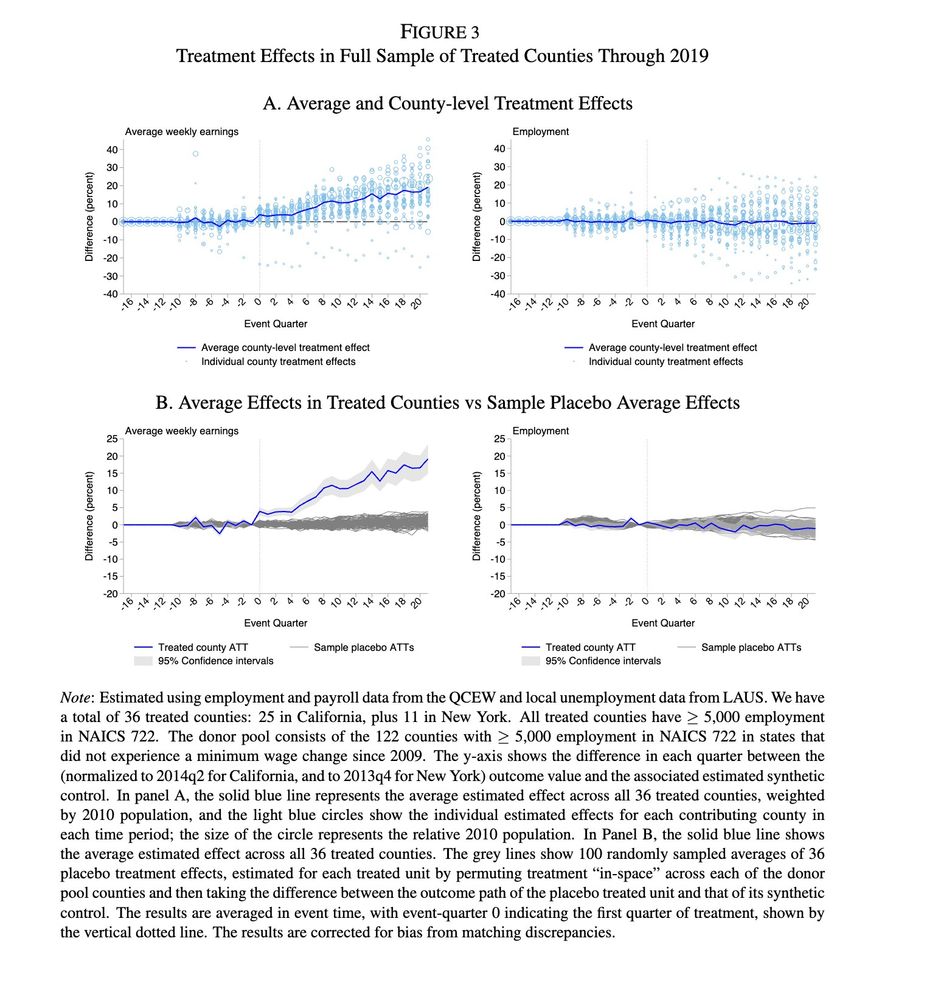
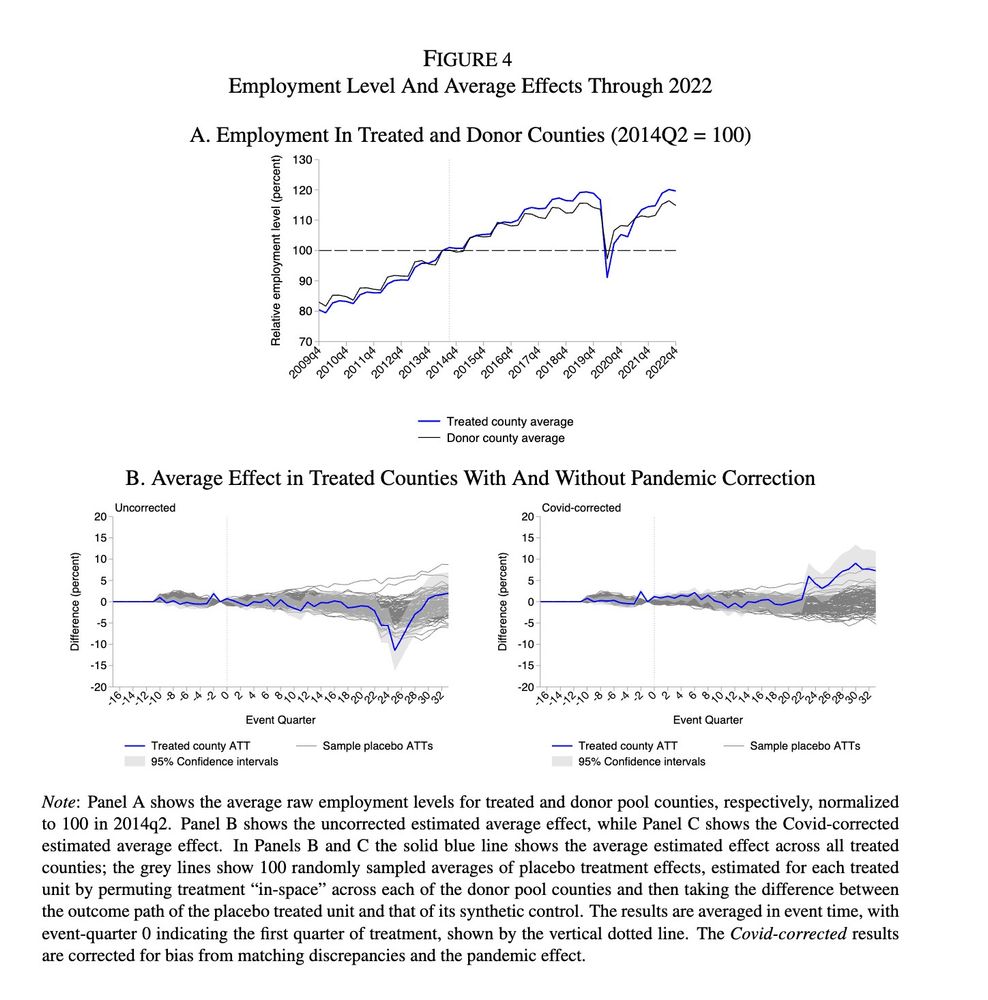
New paper shows that recent $15+ minimum wage hikes have no disemployment effects.
static1.squarespace.com/static/5e0fd...
🚨 New Blog! 🚨
GDP is everywhere in development. But in Zambia in 2010, the national accounts were prepared by just one (1!) person. How much can we trust developing country GDP?
A 🧵 and post on Morten Jerven's 2013 classic, Poor Numbers, on how African GDP is actually made—

Read more in my post on my blog, 🌐 Global Developments 🌐:
https://www.global-developments.org/p/how-much-should-we-trust-developing
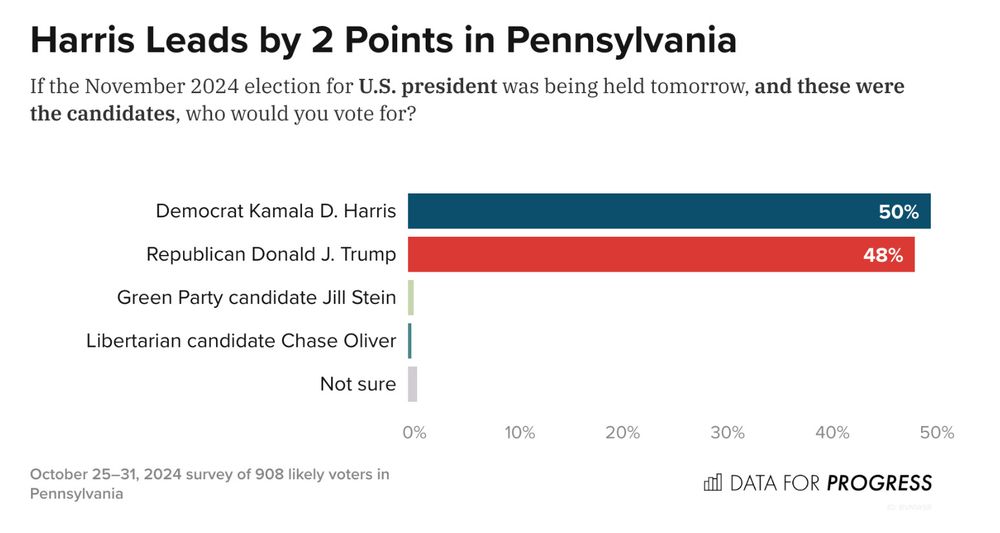
Earlier in November we all got a big lesson in the power of sampling error. Similarly, we should start treating GDP more as a statistical estimate, less as a certainty.
One good step would be publishing margins of error—thought to be at least 3%!!—alongside GDP growth estimates.
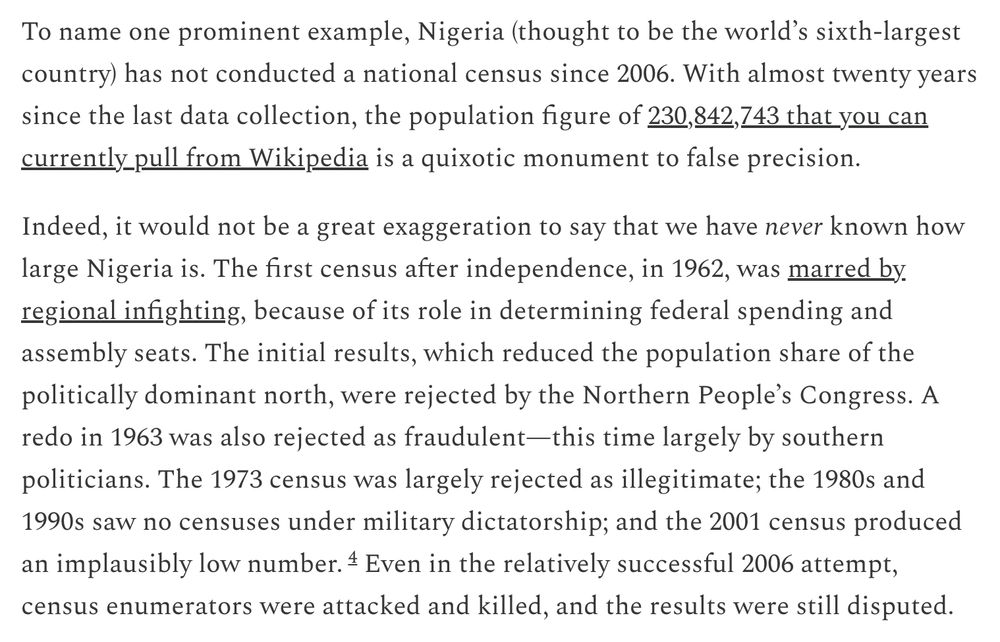
Nigeria—thought to be the 6th largest country in the world—has not had a census since 2006. The 5 censuses it has conducted have been marred by violence and political infighting.
We simply do not know how many people live in what we think is Africa's largest country.